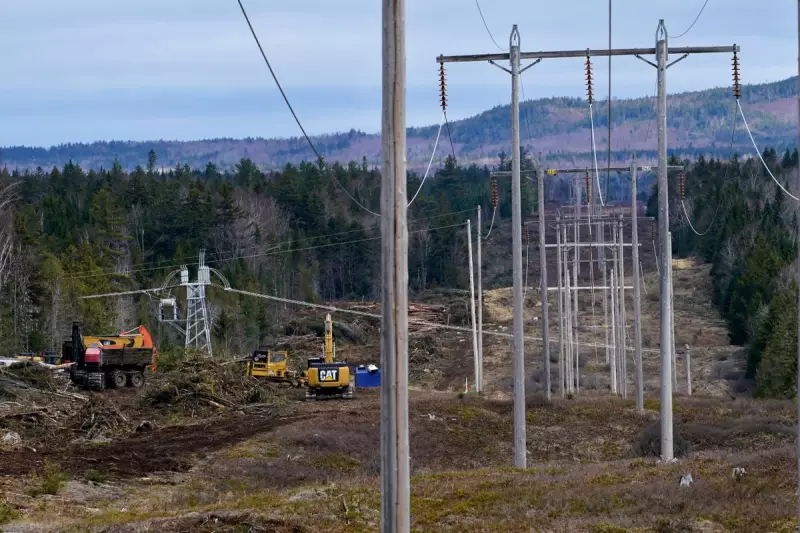
In a significant development for New England's energy landscape, the Avangrid energy company has been granted the final state permit required to proceed with its highly contentious hydropower transmission project in Maine.
A Project Forging Ahead Despite Public Opposition
The New England Clean Energy Connect (NECEC) transmission corridor is designed to channel a substantial 1,200 megawatts of Canadian hydropower into the regional grid. This capacity is projected to supply electricity to hundreds of thousands of homes in Massachusetts. The project's path has been far from smooth, facing a major setback when Maine voters rejected it in a 2021 referendum. A vigorous campaign by opponents, who argued the project would cause irreparable damage to the state's woodlands, successfully swayed public opinion at the ballot box.
Legal Victories Pave the Way for Construction
Despite the public's verdict, the project found legal footing. In a pivotal 2023 ruling, a jury determined that the project's developers held a constitutional right to continue. This legal validation allowed Avangrid Inc., the parent company of Maine's largest utility, Central Maine Power, to push forward. The company received the crucial final permit from the state of Maine on 19th November.
According to Jon Breed, a spokesperson for Avangrid, final testing of the corridor is scheduled for completion by mid-December. Once operational, the system will immediately begin delivering power. Avangrid's chief executive officer, Jose Antonio Miranda, framed the achievement as a triumph for clean energy, stating the company had "secured every permit, met every regulatory requirement, and overcome significant challenges" to address the urgent need for reliable power amidst rising demand.
Lingering Resentment and Future Implications
The 145-mile (233-kilometer) transmission line will run from Lewiston, Maine, to the Canadian border, primarily utilising existing utility corridors. However, the construction of a new 53-mile (85-kilometer) section was the focal point of the protracted dispute. Opponents warn that the long legal fight has fostered deep-seated resentment against Avangrid.
Seth Berry, executive director of the Maine energy nonprofit Our Power, cautioned that the controversy sets a precedent. He asserted that unless future energy projects offer better benefits for local communities, such as shared ownership, Maine could witness a "ever-greater backlash against elected leaders and against the industry as a whole." As the project moves from the courtroom to construction, its legacy continues to fuel debate over energy policy and local consent.





